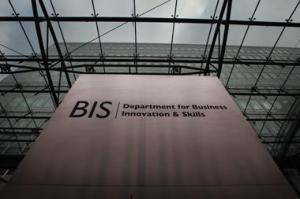Step closer towards '75% rule' on pay votes
A leading corporate governance think-tank will tell the government shareholders should only need a 25% minority to vote down remuneration packages, under the binding vote.
The move is the strongest indicator yet that the rule will be passed, as the High Pay Centre (HPC) has previously been heavily influential at the Department for Business Innovation & Skills (BIS) when creating new laws on pay issues.
The policy, dubbed the ‘75% rule’, would make it easier for non-controlling shareholders to vote down remuneration packages, should the binding vote be introduced.
This idea of a minority vote is not new – it’s already used when reviewing capital structures of companies, article association and meetings at short notice
Deborah Hargreaves, chairman at the HPC – who will pitch the idea to BIS officials on June 19 – said the issue of disengaged foreign shareholders who don’t vote would be helped by the change, because their vote would no longer be so essential in “making up the numbers” for the normal 51% majority required.
And Tom Powdrill, head of communications at PIRC, also praised the idea.
He said the policy would ease difficulties currently associated with dominant shareholders skewing the vote – for example, in the recent case of Glencore and Xtrata, where most of the votes to keep agreed pay deals came from the controlling shareholder.
He added: “This idea of a minority vote is not new – it’s already used when reviewing capital structures of companies, article association and meetings at short notice.”
The move was originally initiated by Dominic Rossi, Fidelity’s equities CIO, and is now part of the enterprise and regulatory reform bill due to be published later this summer.
The HPC is also working with BIS on a ‘single figure’ policy as part of the bill, which aims to amalgamate elements of executives’ pay on annual reports to make it easier for shareholders to digest.
Related articles:
Worst 'value for money' FTSE pay packages revealed
Scheme members join exec pay battle
Binding shareholder votes will only block a fraction of pay deals
Most Viewed
- What does Labour have in store for the pensions industry?
- LGPS latest: GLIL backers invest £475m for UK infrastructure push
- Dashboard costs rose by 23% in 2023, figures show
- Border to Coast launches UK strategy in major private markets push
- How the pensions industry can better support people with mental health problems


